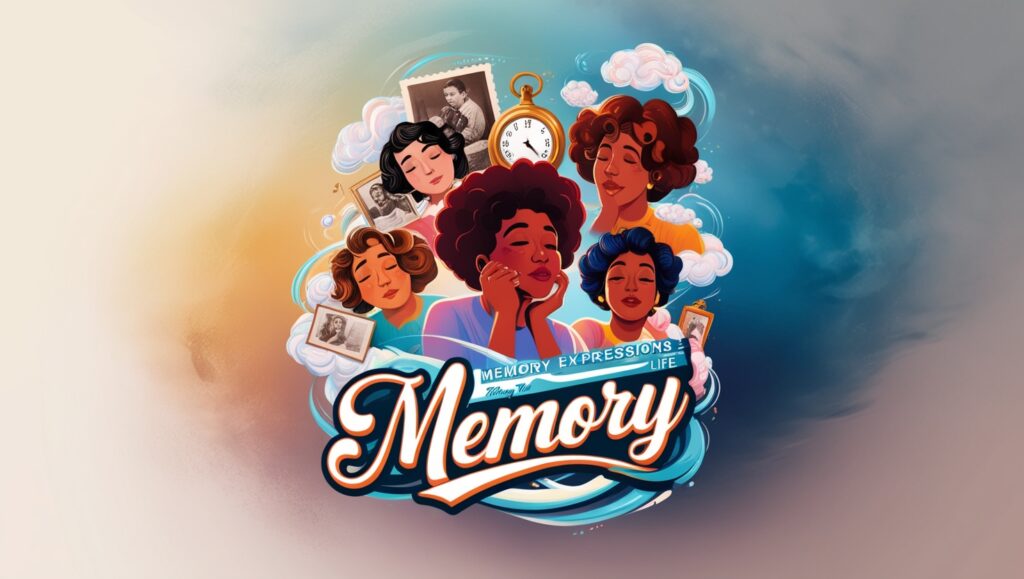Memory Expressions That Bring the Past to Life
Memory performs a vital function in shaping how we assume, study, and connect to others. It influences everything from recalling simple everyday responsibilities to cherishing unforgettable moments of existence. To seize those experiences more vividly, human beings often turn to idioms—innovative expressions that deliver mind and emotions to lifestyles. Memory idioms are specially powerful because they permit us to explain remembering and forgetting in ways that feel relatable and engaging.
For instance, some idioms highlight the clarity of a robust memory, at the same time as others replicate how without problems details can slip our minds. These expressions do more than simply decorate our speech; they also display cultural insights and display how deeply memory impacts human interaction. Using them can make conversations extra colorful, relatable, and remarkable, whether or not in casual speech or in storytelling.
In this newsletter, we’ll discover popular idioms related to reminiscence, uncover their meanings, and display how they could enrich language. By knowing those expressions, you’ll no longer best toughen your vocabulary, however additionally benefit a deeper appreciation for the function memory performs in conversation. Let’s take a more in-depth examination of how these creative phrases carry the concept of memory to existence.
Idioms for Memory
1. Jog Someone’s Memory
Meaning: To assist a person recollect something they had forgotten.
Example: Could you jog my reminiscence about when we left the auto final night time?
Similar Expressions: Refresh a person’s reminiscence, Give a reminder.
2. Put on Memory Lane
Meaning: To revisit beyond research or sports through thoughts or reminders.
Example: Looking via my children’s albums right away locations me on reminiscence lane.
Similar Expressions: Reminisce, Recall the beyond.
3. Learn by using manner of Heart
Meaning: To without a doubt memorize a few problems.
Example: She discovered the entire speech by means of the usage of coronary coronary coronary heart earlier than the presentation.
Similar Expressions: Commit to memory, Memorize.
4. Have a Memory Like a Sieve
Meaning: To overlook approximately topics very without problems.
Example: I genuinely have a memory like a sieve—I maintain misplacing my mobile phone.
Similar Expressions: Absent-minded, Forgetful.
5. Burn Into Memory
Meaning: To maintain in mind a few issues vividly and absolutely.
Example: My memories of my graduation day are permanently etched in my mind.
Similar Expressions: Etched in reminiscence, Imprinted at the thoughts.
See also “Wedding Idioms Explained for Love and Life“
6. Draw a Blank
Meaning: To fail to not forget something at a critical 2nd.
Example: I attempted recalling his name, however I virtually drew a blank.
Similar Expressions: Unable to remember, Come up empty.
7. Fresh in One’s Mind
Meaning: Something that is remembered truly because it came about nowadays.
Example: The statistics of the assembly are glowing in my mind.
Similar Expressions: Vividly remembered, Recent memory.
8. Slip One’s Mind
Meaning: To with the resource of chance overlook a few details.
Example: I came to be intended to name you, however it definitely slipped my mind.
Similar Expressions: Overlook, Forget in short.
9. Ring a Bell
Meaning: To sound acquainted or remind a person of a few issues.
Example: They call jewelry a bell, however I can’t bear it when I hear it.
Similar Expressions: Sound familiar, Strike a chord.
10. Off the Top of One’s Head
Meaning: To maintain in mind a few things without an awful lot of ideas or schooling.
Example: Off the top of my head, I can’t keep in mind her cellular phone variety.
Similar Expressions: Spontaneously, Without wondering.

11. Photographic Memory
Meaning: The capacity to bear in thoughts records with excessive accuracy.
Example: He has a photographic reminiscence—he can repeat entire pages word for phrase.
Similar Expressions: Eidetic memory.
12. Slip of the Memory
Meaning: A small or brief forgetting of some issue.
Example: Apologies for the slip of reminiscence; I forgot your birthday.
Similar Expressions: Memory lapse, Oversight.
13. Lose Track of Time
Meaning: To grow to be so absorbed in some element which you neglect what time it is.
Example: When I paint, I frequently lose track of time.
Similar Expressions: Lose enjoyment of time, become ignorant of time.
14. Fuzzy Memory
Meaning: A memory that is unsure or vague.
Example: My reminiscence of that adventure is a chunk fuzzy—I can’t forget all of the facts.
Similar Expressions: Hazy memory, Vague recollection.
15. Back of One’s Mind
Meaning: Something faintly remembered or considered subconsciously.
Example: Her face seems familiar; it’s inside the again of my mind.
Similar Expressions: Subconscious idea, Vaguely remembered.
16. Go Down Memory Lane
Meaning: To take pride in nostalgia with the aid of remembering the beyond.
Example: I get transported back in time when I listen to old songs.
Similar Expressions: Reminisce, Recall memories.
17. Make a Mental Note
Meaning: To consider something without writing it down.
Example: I’ll make a highbrow take a look at to buy groceries on my way yet again.
Similar Expressions: Remember mentally, Keep in mind.
18. Memory Like an Elephant
Meaning: To have a really sturdy memory.
Example: My grandmother has a reminiscence like an elephant—she recollects memories from some years in the beyond.
Similar Expressions: Remarkable memory, Never forgets.
19. Slip Through One’s Fingers
Meaning: To skip over or lose an opportunity.
Example: That project offer slipped through my palms because of the truth I behind schedule my reaction.
Similar Expressions: Miss out on, Let slip away.
20. Remind Someone of the Past
Meaning: To motive recollections of earlier times.
Example: This music jogs my memory of our circle of relatives journeys to the beach.
Similar Expressions: Evoke recollections, Bring again the past.

21. Keep in Mind
Meaning: To not forget or take a few aspects into attention.
Example: Keep in mind that the reduce-off date is the next day.
Similar Expressions: Bear in mind, Remember.
22. Have a Memory Lapse
Meaning: To quickly forget about something.
Example: Sorry, I had a memory lapse and forgot the meeting time.
Similar Expressions: Temporary forgetfulness, Brief memory loss.
23. Memory Trigger
Meaning: Something that reasons a person to consider.
Example: The scent of glowing bread is a memory trigger from my children.
Similar Expressions: Memory cue, Reminder.
24. Slip From Memory
Meaning: To be forgotten over time.
Example: Over the years, many records of the story slipped from my memory.
Similar Expressions: Fade from memory, Be forgotten.
25. Keep in One’s Memory
Meaning: To preserve a reminiscence for a long time.
Example: I will typically keep the commands I found out from my father in my memory.
Similar Expressions: Retain in memory, Remember.
26. Make an Impression on Memory
Meaning: To be remembered genuinely because of impact.
Example: The breathtaking view made a long-lasting impact on my reminiscence.
Similar Expressions: Etched in reminiscence, Leave a mark.
27. Memory Lane
Meaning: A figurative route again to nostalgic memories.
Example: Walking through my antique college proper takes me down the reminiscence lane.
Similar Expressions: Nostalgia, Recollection.
28. Remember the Past
Meaning: To undergo in mind activities or studies from earlier instances.
Example: Visiting the vintage network made me not forget the past.
Similar Expressions: Reflect on memories, Recall history.
29. Bring Back Memories
Meaning: To cause past recollections.
Example: Visiting the park brings lower back recollections of playing there as a toddler.
Similar Expressions: Evoke recollections, Remind of the past.
30. Hold in Memory
Meaning: To keep something remembered for a long term.
Example: I’ll continuously hold your encouraging terms in my memory.
Similar Expressions: Retain in reminiscence, Keep in mind.
MCQs
1. Which idiom means “to help someone recall something they had forgotten”?
a) Burn into memory
b) Jog someone’s memory
c) Slip one’s mind
d) Ring a bell
Answer: b) Jog someone’s memory
2. If someone says, “That old photo puts me on memory lane,” what are they expressing?
a) They are looking into the future.
b) They are remembering the past.
c) They are confused about an event.
d) They are learning something new.
Answer: b) They are remembering the past.
3. The idiom “have a memory like a sieve” refers to:
a) A person with strong recall skills.
b) Someone who remembers details from long ago.
c) Someone who forgets things easily.
d) A person who never writes anything down.
Answer: c) Someone who forgets things easily.
4. Which expression best describes something that is remembered clearly and vividly?
a) Slip through one’s fingers
b) Burn into memory
c) Fuzzy memory
d) Slip of the memory
Answer: b) Burn into memory
5. If you “draw a blank” during a conversation, what happens?
a) You lose interest in talking.
b) You cannot remember something.
c) You suddenly recall a detail.
d) You imagine a situation clearly.
Answer: b) You cannot remember something.
6. Which idiom suggests forgetting something accidentally or temporarily?
a) Slip one’s mind
b) Photographic memory
c) Back of one’s mind
d) Keep in mind
Answer: a) Slip one’s mind
7. “That name rings a bell” means:
a) It confuses me.
b) It reminds me of something familiar.
c) It makes me excited.
d) It is easy to memorize.
Answer: b) It reminds me of something familiar.
8. Which idiom is used when someone recalls something without much thought or preparation?
a) Make a mental note
b) Off the top of one’s head
c) Lose track of time
d) Memory trigger
Answer: b) Off the top of one’s head
9. What does “fuzzy memory” describe?
a) A memory that is sharp and clear.
b) A memory that is vague or unclear.
c) A memory that is recent.
d) A memory that is burned in the mind.
Answer: b) A memory that is vague or unclear.
10. Which idiom refers to being completely absorbed in an activity and forgetting the time?
a) Go down memory lane
b) Slip through one’s fingers
c) Lose track of time
d) Keep in mind
Answer: c) Lose track of time
11. If someone has a “memory like an elephant,” it means they:
a) Forget small details.
b) Have exceptional memory.
c) Cannot recall faces.
d) Keep memories at the back of their mind.
Answer: b) Have exceptional memory
12. What does “slip through one’s fingers” mean?
a) To forget something.
b) To lose an opportunity.
c) To make a mental note.
d) To remember vividly.
Answer: b) To lose an opportunity
13. To “remember or take something into account,” which idiom is it?
a) Keep in mind
b) Hold in memory
c) Memory lapse
d) Ring a bell
Answer: a) Keep in mind
14. A “memory trigger” is:
a) Something that causes someone to recall the past.
b) An attempt to forget an experience.
c) A person with strong memory.
d) A plan to memorize something.
Answer: a) Something that causes someone to recall the past
15. Which idiom means “to be remembered clearly because of its impact”?
a) Back of one’s mind
b) Make an impression on memory
c) Slip of the memory
d) Fresh in one’s mind
Answer: b) Make an impression on memory
Summary
The article explores the significance of memory in daily existence and verbal exchange, emphasizing how idioms deliver the idea of remembering and forgetting to existence in colourful, relatable ways. It presents 30 commonplace memory-associated idioms (together with jog a person’s memory, burn into memory, slip one’s mind, photographic reminiscence, and pass down reminiscence lane), explaining their meanings, examples, and similar expressions. These idioms capture distinct elements of reminiscence—whether or not it’s strong don’t forget, indistinct remembrance, or unintentional forgetfulness—and show how language reflects cultural views on memory. The article concludes with MCQs to assist readers test their expertise of those expressions.
Read more about Idioms At Idiomsinsider




Post Comment